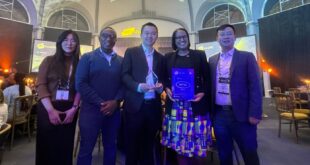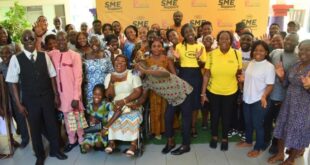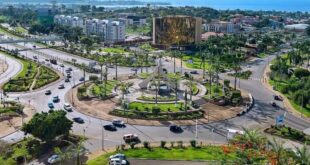Tamale, Ghana – The Vice Chancellor of the University for Development Studies (UDS), Professor Gabriel Ayum Teye, has bemoaned the over-politicisation of every national issue in the country, including education.
According to him, every issue was seen in the lenses of either the National Democratic Congress (NDC) or the New Patriotic Party (NPP) and oftentimes, the real substance of important issues was sacrificed on the altar of politics.
Prof. Teye was speaking at the annual Harmattan School of the UDS organised by the Institute for Interdisciplinary Research and Consultancy Services (IIRaCS), a research wing of the UDS, on the theme: “Depoliticising Education for National Development: The Role of Academia, Civil Society Organisations and Development Partners” in Tamale last Wednesday.
The Harmattan School
The Harmattan School is one of the many platforms created by the UDS and opened to researchers, civil society organisations, policy makers and non-governmental organisation (NGOs) to congregate and brainstorm on development issues confronting northern Ghana, in particular, and the country as a whole.
It is also for academic peer review purposes and serves as an avenue for the discovery of practical solutions to address the developmental challenges of the nation and, particularly, northern Ghana.
Politicisation of issues on education
Prof. Teye in his address cited the change in the duration of the second cycle education from three to four years and back to three years to buttress his point, saying that was done simply because the baton of governance changed hands.
He also cited the implementation of the free Senior High School (SHS) policy to further buttress his point as to how issues regarding education were politicised, saying the debate on the free SHS had heightened not on how to surmount the challenges confronting the implementation, but largely on whether it should be free or progressively free.
Prof. Teye, therefore, urged the opposition to criticise objectively in the bigger interest of Ghana and urged the government to remain focused but humbly accept the views of others if those views would be in the superior interest of the country.
Turning to the media, he said the media had the opportunity of setting the tone for a national debate but oftentimes agreed to the whims of the political class leaving behind the technocrats in matters of importance to national discourse.
“For us in the academia, the overriding purpose of any activity we undertake is ultimately to contribute to societal growth and national development which invariably ensures our own growth as faculty members and citizens,” he stated.
“Education is life for us as individuals, it is life for us as a society and it is life for us as a nation. So when we politicise education, we politicise our very lives,” he stated.
Free SHS
In an address read on behalf of the Minister of Education, Dr. Matthew Opoku Prempeh, by the Northern Regional Director of Education, Alhaji Mohammed Haroon, he also added his voice to the over politicisation of issues concerning education.
“We should be debating on how to make the laudable SHS policy succeed and not sending ourselves back to the campaign time when we were marketing our ideas”, he stated.
He, therefore, called on all Ghanaians, especially, the academia, civil society groups and the media to help carry through the implementation of the free SHS, saying the free SHS had come to stay and together with one accord, it would succeed.
Communique
A communiqué issued at the end of the 12th Harmattan School, recommended that educational policy formulation should not be hinged on partisan politics but rather emphasis should be placed on making policies that responded to the developmental goals of the country.
They also recommended that Ghana as a nation must have a shared long-term vision and an educational system from which political manifestoes and educational policy implementation plans should be drawn.
The participants further recommended that there should be broader stakeholder consultations for educational policy review, formulation and reforms.
Source: Graphic.com.gh
 Savannah News Online Reporting Only What Matters Most
Savannah News Online Reporting Only What Matters Most



